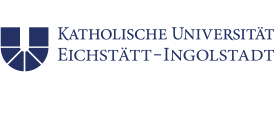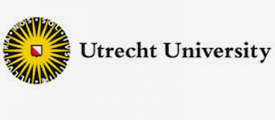Work packages
Work package 1
In work package 1 we take stock of and build on existing theories and analyses of the impact of technology, trade and industrial transformations across regions on labour markets (employment and wages); we analyse how technology, trade and industrial transformation specifically affect labour mobility and migration.
“Past Pillar": Taking stock of Trade, Industrial transformation and labour mobility
Work package 1 will empirically ground the following dynamics:
- Technology penetration in sectors, by quantifying the exposition of sectors across EU regions to different waves of automation and digitisation and identify the sectoral specificities of the technology-jobs nexus.
- Impact of waves of technology and trade on jobs, by assessing the long-term dynamics of the level and composition of employment and alternative work arrangements across EU regions and sectors.
- Sectoral and functional reallocation of workers along GVCs, by studying how functional specialization (in management, marketing, R&D, and fabrication) varies along global value chains (GVCs), and how the changing nature of GVCs affects functional specialization of EU regions and countries
- Industrial dynamics and regional diversification as affecting skills demand, by analysing the interrelated effects of automation technologies and patterns of GVC integration on industrial dynamics across EU regions, to map the geography of demand and supply of skills, and ground the trajectories to be identified in WP4.
- Migration and labour mobility, by assessing the impact of technological change on labour mobility within the EU and on immigration flows into the EU.
- Global patterns of trade, structural change and labour markets in Latin American countries as affecting the relationship with EU and international governance, by assessing how technology and trade affect employment and wage inequality in Latin American countries, and implications for trade and political relationship with the EU.
Work package 2
The main aim of this work package is to analyse the effectiveness of (past and existing) education and training systems in preparing workers to cope with changing skill demands due to technology, global value chains, and industrial transformations. In doing so, this work package sheds light on how workers adapt to technology-induced or trade-induced challenges, for instance, by participating in (re-)training or by switching to other occupations.
“Past Pillar”: Skills mismatch and reconfiguration of skill demand and supply
Work package 2 more specifically will shed light on the following points:
- Investigating the mismatch between the skills demanded by employers and those provided by the education system across the European Union.
- Assessing the extent to which technology, GVC and industrial transformations increase skill mismatch and the demand for (re-)training across Europe.
- Analysing the impact of skill mismatch on labour market performance and wage inequality at the regional level.
- Estimating the effect of technological and industrial transformations on labour mobility and the transferability of workers’ skills across occupations.
- Estimating training frequency and effectiveness in occupations with varying degrees of exposure to technology, GVC and industrial transformations across the European Union.
- Investigating how differences in digital skills across age cohorts affect wage inequality.
Work package 3
In this work package we will provide a scenario of how technological change is likely to shape future labour markets. We will identify the science, technology and innovation areas related to Industry 4.0 that are most likely to emerge and improve in the next few years. By combining quatitative and qualitative methods this workpackage will create a validated dataset on industry exposure to emerging automation technologies in Industry 4.0.
“Future Pillar”: Emerging Automation Technologies and their Expected Adoption across industries
In this work package we will:
- Shed light on industries and regional exposure to emerging automation technologies.
- Create a dataset of emerging automation technologies that includes industry exposure to these emerging automation technologies.
- Conduct a Delphi-Survey to validate the dataset and to study how industry exposure may vary across contexts.
- Combine the above points to scrutinise industry and regional exposure to emerging automation technologies.
Work package 4
We outline the future dynamics in industries and occupations, and their effect on the future geography of industries and occupations in Europe. Further, we study how the effect of automation spreads across the globe through global value chains (GVCs), and how this affects differentially industries, locations, and occupations in Europe.
“Future Pillar”: Future Dynamics in the geography of industries and occupations.
This work package focusses on:
- Identifying the future diversification opportunities of regions and assessing the future geography of industries and occupations in Europe.
- Assessing the effects of changes in industry and occupation space on the future geography of industries and occupations in Europe.
- Changes in industry-location-occupation exposure to automation via GVCs.
- Assessing the effects of the future geography of industries and occupations in Europe on alternative work arrangement and inequality.
Work package 5
The goal of this work package is to predict future trends of demand for occupations and skills based on fine grained, high frequency data on job vacancies. We analyse online job vacancies through AI algorithms to predict and identify the factors that affect the demand for skills. We then estimate how emerging automation technologies identified in work package 3 may change the demand of skills and occupations in the future.
“Future Pillar”: Analysing skills demand through AI for predicting new trends
In particular the work package aims to:
- Develop a predictive model to forecast the relevance of digital/soft/hard-non-digital skills on future occupations related to emerging automation technologies across European countries.
- Predict the speed and direction of changes of skills demand, within occupations, across regions and industries.
- Predict new occupations expected to emerge, in relation to emerging automation technologies.
- Predict future changes in the supply of skills, in relation to changes in the skills demand and country institutional and sociological features.
Work package 6
Work package 6 is meant to act as a catalyst between work packages 1 to 5, on the one side, and work package 7, on the other side. As these work packages focus on how technology, trade and demand for skills has changed and is likely to change in the future, this work package focuses on how policy can best support these changes.
"Present Pillar": Which policies shape future labour markets?
- Based on the results from work packages 1 to 2, work package 6 will study and identify the best life-long training policies, migration policies, and regional smart specialisation policies. In other words, policies that are aimed at the stabilisation of labour market participation.
- From work packages 3 to 5 this work package will gain insights on how changes in technology, trade and specialisation and the related skill demand is going to affect the future of work.
- By combining the identified successful past policies and projected future pathways, this work package will establish a coherent policy road map for socially inclusive responses to ongoing technological change and new pathways in globalisation. Which will feed directly into work package 7.
Work package 7
By combining the results from the research conducted in work packages 1-6 we will support the process of co-designing policies for inclusive labour markets. This work package will thereby aim to serve as a bridge between the Horizon-funded research and (future) policy-making. Through engagement with policy stakeholders, we seek opportunities for the lessons learned about the impact of technological changes on the labour market to be incorporated in inclusive policy-making.
"Present Pillar": Co-designing future policies for inclusive labour markets
More specifically, in this work package we will:
- Identify priority areas for the specific policy domains of the labour market to be supported.
- Identify appropriate types of policy interventions (awareness raising, regulation, funding, etc.) per priority area.
- Share good practices of existing policies.
- Develop reate guidelines for developing strategies and projects for designing labour markets resilient to technological, trade and industrial transformations and that are inclusive for the current and future labour force.
- Develop toolkit on policy co--creation activities for regional governance on inclusive labour market.
- Create international stakeholder panel involved in co-creating new policy opportunities.






